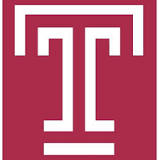Translation and Clinical Implementation of a Test of Language and Short-term Memory in Aphasia.
| Status: | Recruiting |
|---|---|
| Conditions: | Neurology |
| Therapuetic Areas: | Neurology |
| Healthy: | No |
| Age Range: | 21 - 80 |
| Updated: | 8/22/2018 |
| Start Date: | December 15, 2017 |
| End Date: | November 30, 2022 |
| Contact: | Nadine Martin, Ph.D. |
| Email: | nmartin@temple.edu |
| Phone: | 215 294 1870 |
Translation and Clinical Implementation of a Test for Language and Short-term Memory in Aphasia.
This project aims to develop a clinically feasible version of a laboratory-developed
assessment battery for language and verbal short-term memory difficulties in aphasia.
assessment battery for language and verbal short-term memory difficulties in aphasia.
Over five years, we will develop a clinically feasible test that can be used to assess
in-depth the language and verbal short-term memory abilities of individuals with aphasia
(Called the TALSA - Temple Assessment of Language and Short-term memory in Aphasia. Based on
a test that we have developed and tested over the past decade, we will create a shorter
version that can be used by clinicians in a rehabilitation setting. The data to support this
development will come from two sources: (1) clinicians in rehabilitation facilities who will
use the new clinical test and provide feedback on the test (administration, value etc) and
(2) people with aphasia who will be administered the longer version to help us identify the
best test items in the laboratory version of the TALSA to be carried over to the shorter
clinical version.
We are recruiting individuals with aphasia as well as people without aphasia (to serve as
controls) to help with development of this assessment battery. The battery consists of
between 15 and 20 subtests that assess many aspects of language and verbal short-term memory.
in-depth the language and verbal short-term memory abilities of individuals with aphasia
(Called the TALSA - Temple Assessment of Language and Short-term memory in Aphasia. Based on
a test that we have developed and tested over the past decade, we will create a shorter
version that can be used by clinicians in a rehabilitation setting. The data to support this
development will come from two sources: (1) clinicians in rehabilitation facilities who will
use the new clinical test and provide feedback on the test (administration, value etc) and
(2) people with aphasia who will be administered the longer version to help us identify the
best test items in the laboratory version of the TALSA to be carried over to the shorter
clinical version.
We are recruiting individuals with aphasia as well as people without aphasia (to serve as
controls) to help with development of this assessment battery. The battery consists of
between 15 and 20 subtests that assess many aspects of language and verbal short-term memory.
Inclusion Criteria:
- . single or multiple left hemisphere lesions
- at least one year post-stroke.
- high-school educated
- negative histories for mental illness and alcohol/substance abuse.
- passed an audiometric pure-tone, air conduction screening at 25 dB HL at 1K, 2K and 4K
Hz for at least one ear.
Exclusion Criteria:
English as a second language Right hemisphere stroke Less than 6 months post-onset of
stroke.
We found this trial at
2
sites
1801 N Broad St
Philadelphia, Pennsylvania 19122
Philadelphia, Pennsylvania 19122
(215) 204-7000

Phone: 215-204-1870
Temple University Temple University is many things to many people. A place to pursue life's...
Click here to add this to my saved trials
Univ of Washington Founded in 1861 by a private gift of 10 acres in what...
Click here to add this to my saved trials
